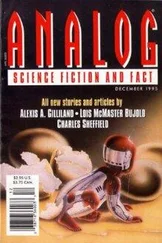It lasted only a short time, the adventure, and can be briefly and accurately remembered. Quickly, then: He had heard there was a special university for refugees in a city on the Rhine, and thought they might admit him. We lived in a hotel over a café, and discovered we were living in a brothel. The university existed, but its quota was full. We were starving to death. We were so attractive a couple, so sympathetic-looking, that people dulled with eating looked at us fondly. We strolled along the Rhine and looked at excursion boats. “Your duty is always before you, plain as that,” my father had said, pointing with his walking stick to some vista or tree or cloud. I do not know what he was pointing at — something in his mind.
Because of Peter I was on a sea without hope of landing anywhere. It grew on me that he had been jealous of my safety and had dragged me beyond my depth. There had been floods — I think in Holland — and money was being collected for the victims. Newspapers spoke of “Rhine solidarity,” and I was envious, for I had solidarity with no one now. It took me time to think things out, for I had no illusions about my intelligence, and I wondered finally why I did not feel any solidarity with Peter. I loved him, but together we would starve or drown.
“You can’t stay here,” said the owner of the hotel one day. “It isn’t safe for refugees. We have the police in too often.”
“We can’t move,” said Peter. “My wife is ill.” But that did not give me a feeling of solidarity, for I was not his wife, and he was a person who would keep moving from one place to another.
He never told the same story twice, except for some details. He said he was picked up and deported when he was ten or twelve. He was able to describe the Swiss or Swedish consulate where they tried to save him. In his memories, the person who hid him was always different. Sometimes he said it was a peasant, sometimes a fat woman who shut him in a cupboard. The forced march must have been true. Someone — he did not say who — was working on his behalf. He hinted he was illegitimate, and that a person of noble birth, who did not wish to be known, was his protector. It is true that sometimes in the marches from Budapest to the border one person in the column was saved, if the order came through in time. It was often at night. The column stopped by the side of the road, and the torches, hooded because of the air raids, moved from face to face. One night, the light picked out an old man who would have died soon in any case, and Peter. He could not see his deliverers — he saw the light moving from face to face. The light was lowered. He tried to hide, but they spoke his name. He thought the light meant an execution. He was taken away in a car, back to Budapest, and in the car was comforted with chocolates. These were the details he repeated: the light on his face, the voice saying his name, and the chocolates. Sometimes, being boastful, he said he was active in the Arrow Cross Party; but he was a victim, and a child. Once, he said he was poor and had sold papers in the street to pay for his shoes. But he was such a liar. He may have been poor, or he may have been from a solid family who lost him along the way; but it was not a Protestant family, and his father was not a professor at Debrecen. Also, he was not in Budapest during the uprising in 1956. He was in a city on the Rhine, starving, with me.
We stood at the foot of the cathedral in this city one day. We had nothing to eat and nothing to do. I could not understand why Peter had brought me here or what he wanted now. He urged me to write my father’s old friends in Lausanne, or to my aunt in Paris, but I was proud, and ashamed that he would ask such a thing. I think he believed I was a magic solution just in myself. He lived in a fantasy of false names, false fortunes, false parents, and here was a reality of expired visas and dry bread he could not explain away.
“Goethe climbed to the top of this cathedral to cure himself of vertigo. You should try it,” Peter said.
“Oh, Goethe would,” I said, and that was the only thing that autumn that made Peter laugh. We climbed and climbed, and looked down at matchbox cars. I felt vertigo, and was surprised he did not. I held out my arms to receive him if he fainted — I was so sure he would not stand this — but he stood smiling down with no intention of toppling over. Below was the sweet nursery world, nursery-sized, with toy trains and toy people. It smiled back at him; he was its lord, at least from up here. My world was my size, and often bigger. I was afraid of the shrunken world as he saw it; he made me unsteady. I left him that day. He went alone to the post office to see if there were phantom letters from ghost friends, and I made myself as tidy as I could and went to my own consulate with a plausible story. And that was the last Peter saw of me, until Peter, or Poodlie, called my name at the station.
I don’t know what he remembered. He had taken my family as his, and expected me to smile. Actually, I did. I made him a present of my family. But by now he must have believed that whatever came into his head was true, for he did not thank me — neither then nor later. I leaned over the table and said, “I see what is making the difference. It is the dark glasses.” He immediately took them off, but I saw that I still did not recognize him.
An excursion party now trooped into the buffet. Their accents were, I think, industrial England over, I think, Viennese. One of the women smeared thick white cream on her sunburned arms. “Let’s finish and pay and get out of here,” said Peter’s wife, sharply. I stared at him then, but his face showed nothing. He did not add or contribute. It might have had nothing to do with him. She slipped him folded money so that he could pay the bill. I tried to think, but they had stuffed me with food. I clung to one idea: no one would get me out of Switzerland again, as he once had to a city on the Rhine, as my old aunt had got me to Paris. Each time I returned I was wounded, or had failed. Outside the station, I stopped at the kiosk, but of course my newspapers were gone.
The next afternoon, I sat in the lobby of their hotel. His wife now looked through the windows to the station, as if afraid of missing the train out. She poured tea from a leaky pot, and passed chocolate biscuits, shell-shaped, in a thin coating of sugar. They were Poodlie’s favourites; she was sorry he wasn’t here. She poured with a tense, strong hand — I admired the long fingers, and the short nails, on which the red was thickly spread. Absently but politely, she asked about my work, as if she were a headmistress interviewing me for a post.
I described flowers next to snow, and plants so perfect and minute, rooted on stone, that they must be like the algae on Mars.
“Oh, yes, edelweiss,” she said.
He was a parcel posted without an address, and he had come to her. Now I heard her inviting me to join them. I heard the words “The twins would adore you, and he is a different person when you’re there. I’ve never seen him so gay and happy as he was yesterday at lunch.” He had put her up to it, and now he was out, walking around in the village, waiting for the barter to be completed. “He has talked about you such a lot,” she said.
“What did he tell you?”
“Why, that you were a wonderful person. He said you had been so kind to him.”
That part of it ended there. She explained that Peter was walking, not in the village, as I had supposed, but somewhere up a mountain. He had gone up in a cable car. “I didn’t bring the right clothes,” she said. “We could drive somewhere, but we never do.” It was the only sign of her discontent. The person she had gone to consult when she contemplated this marriage — a rapid psychotherapy, she explained — had warned her not to take over too many head-of-the-family functions from a young husband. That meant, among other things, that she was never to drive the car. But Poodlie was too wild to drive. She gave him cars, but could not trust him to drive them. I thought of him wandering along a steep, windy slope now, not knowing how to keep a foothold in his slippery shoes. He was up above the village in his dark suit and dark glasses and shoes. How could she let him go that way — as if he were lost or had strayed from the towns? He was alone, shivering (no one had told him how cold it would be), dreaming and inventing things to be remembered.
Читать дальше












